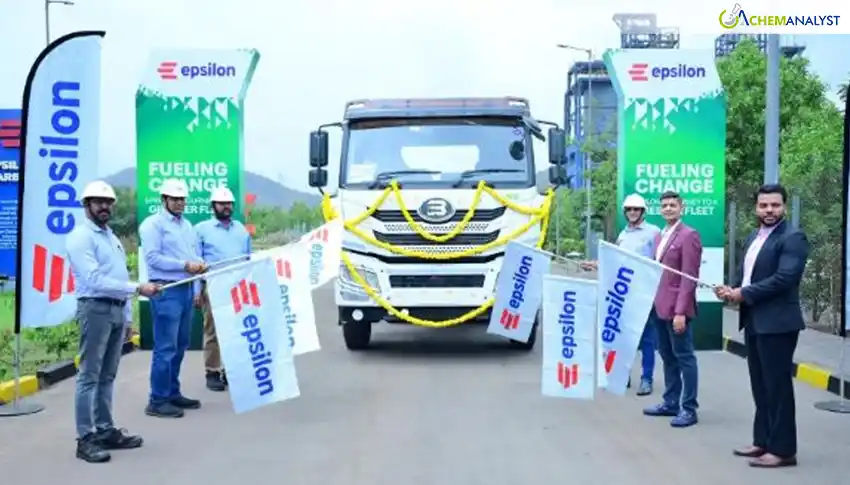Welcome To ChemAnalyst

Epsilon Carbon, a producer of carbon black and specialty carbon products, has introduced a fleet of eight LNG-powered tanker trucks to reduce emissions and improve supply chain efficiency.
In a major move to decarbonize its supply chain, Epsilon Carbon Pvt. Ltd. has unveiled a new fleet of eight liquefied natural gas (LNG)-powered tanker trucks. This initiative positions the company as a pioneer in the Indian coal tar industry to adopt LNG for the transport of its key raw material. The company’s latest effort builds on its existing sustainability initiatives, which include the introduction of electric trucks in 2023 and LNG containers earlier in 2025. This integrated approach aims to create a diversified, low-carbon logistics model.
The transition to LNG-powered vehicles is a significant step in reducing the company's Scope 3 emissions, which are indirect emissions from its value chain. According to Epsilon, the new tankers are expected to lower CO2 emissions by 20–25% compared to traditional diesel vehicles. Furthermore, they will cut nitrogen oxides (NOx) by as much as 90% and virtually eliminate particulate matter emissions. This move not only aligns with global environmental standards but also responds to the growing demand from customers for more sustainable and transparent supply chains.
Vikram Handa, Managing Director of Epsilon Carbon, emphasized the importance of this shift, stating, "Road logistics is central to India's economy, and as one of the largest players in our sector, we recognise the responsibility to make it cleaner and more efficient." He highlighted that the company's commitment to sustainability is at the core of its operations and growth strategy. The new LNG fleet is designed for long-haul operations, with each tanker offering a range of approximately 730 kilometers, making it ideal for the transport of coal tar.
Beyond the environmental benefits, the new fleet also offers operational advantages. LNG trucks are known for their improved fuel efficiency, delivering 5-10% better mileage than their diesel counterparts. This leads to reduced fuel consumption and long-term operating cost savings, making the sustainability-focused investment a sound business decision. The company plans to gradually expand its LNG fleet, reinforcing its long-term commitment to scaling decarbonization efforts across its logistics operations.
Epsilon Carbon's push for cleaner logistics is in sync with India's ambitious goal of achieving Net Zero emissions by 2070. As industries face increasing pressure to adopt more sustainable practices, Epsilon Carbon operates manufacturing facilities in Karnataka, Chhattisgarh, and Odisha, producing specialty carbon and carbon black for key industries such as aluminium, tires, and chemicals.
We use cookies to deliver the best possible experience on our website. To learn more, visit our Privacy Policy. By continuing to use this site or by closing this box, you consent to our use of cookies. More info.
